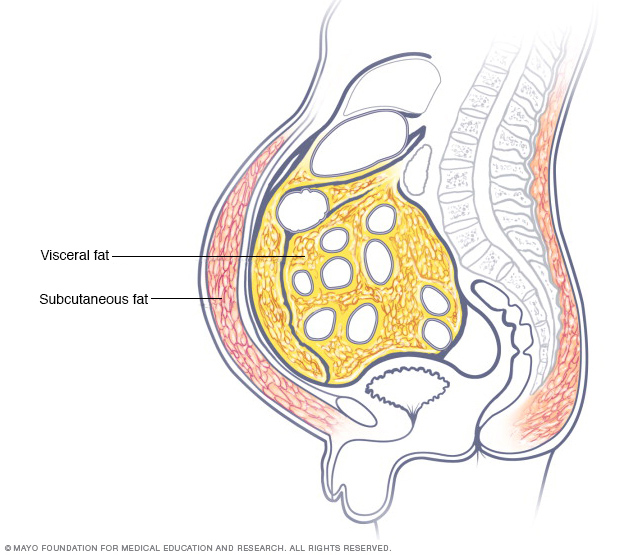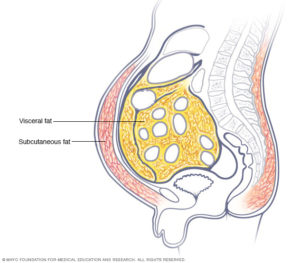
Belly fat is nothing to joke about. Find out what causes belly fat, the health risks it poses for men and what you can do to lose the extra pounds.
If you’re carrying a few extra pounds, you’re not alone. But this is one case where following the crowd isn’t a good idea. Carrying extra weight — especially belly fat — can be risky.
Learn why belly fat is harmful and what you can do to reduce your waist size.
Belly fat is a more dangerous fat

Subcutaneous fat is the belly fat you can feel if you pinch excess skin and tissue around your middle. Visceral fat is belly fat that accumulates in your abdomen in the spaces between your organs. Too much visceral fat is strongly linked with a greater risk of serious health problems. (Mayo Foundation)
The trouble with belly fat is that it’s not limited to the extra layer of padding located just below the skin (subcutaneous fat). It also includes visceral fat — which lies deep inside your abdomen, surrounding your internal organs.
Regardless of your overall weight, having a large amount of belly fat increases your risk of:
- Cardiovascular disease
- Insulin resistance and type 2 diabetes
- Colorectal cancer
- Sleep apnea
- Premature death from any cause
- High blood pressure
Age and genetics may contribute to gaining belly fat
Your weight is largely determined by how you balance the calories you eat with the energy you burn. If you eat too much and exercise too little, you’re likely to pack on excess pounds — including belly fat.
Aging does play a role too. As you age, you lose muscle — especially if you’re not physically active. Loss of muscle mass decreases the rate at which your body uses calories, which can make it more challenging to maintain a healthy weight. According to the 2015-2020 Dietary Guidelines for Americans, men in their 50s need about 200 fewer calories daily than they do in their 30s due to this muscle loss.
Your genes also can contribute to your chances of being overweight or obese, as well as play a role in where you store fat. However, balancing the calories you consume with activity can help prevent weight gain, despite your age and genetics












